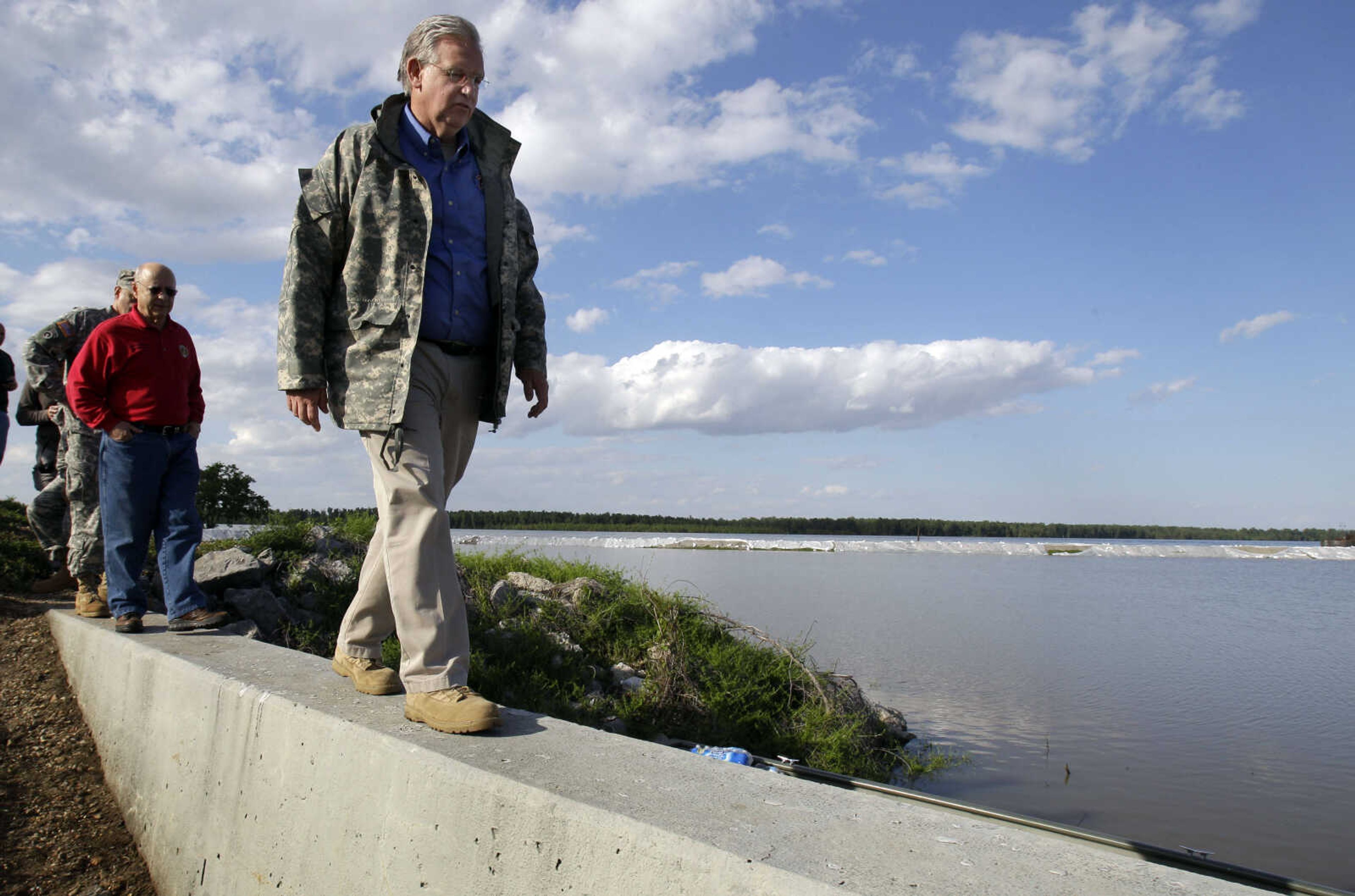Nixon pledges additional $100 million for disaster relief
JEFFERSON CITY, Mo. (AP) -- Missouri Gov. Jay Nixon has pledged an additional $100 million in state disaster aid following the deadly tornado in Joplin and continued flooding across the state. Nixon's announcement Friday raises Missouri's total financial commitment to $150 million for a particularly devastating few months of natural disasters...
JEFFERSON CITY, Mo. (AP) -- Tapping into better-than-expected state revenues, Missouri Gov. Jay Nixon pledged an additional $100 million in state disaster aid Friday following the deadly tornado in Joplin and continued flooding across the state.
The latest announcement raises Missouri's financial commitment to $150 million after a particularly devastating few months of natural disasters, but Nixon's budget director said that could rise even higher depending on the final cost of the damage and how much the federal government will pay.
"Sitting here today, we don't know if that $150 million will be adequate," said Linda Luebbering, the head of the governor's budget and planning office.
Despite lower than projected income and sales tax revenues, Missouri ended its 2011 fiscal year Thursday with 5.9 percent growth over the previous year and a cash balance of about $300 million, Luebbering said. The revenue growth was fueled primarily by a decline in tax refunds paid to individuals and businesses.
The governor previously announced he was designating $25 million in state aid for the Joplin tornado and $25 million for flooding in southeast Missouri. About 130,000 acres of fertile farmland and rural homes were swamped in early May after the U.S. Army Corps of Engineers blew up a Mississippi River levee on the Missouri side of the river to relieve flooding pressure on the nearby town of Cairo, Ill.
Luebbering said most of the additional money is needed because of the May 22 tornado that killed 156 people and destroyed about 8,000 homes and businesses in Joplin. But she said some could pay for flooding aid. Significant sections of rural northwest Missouri are underwater as result of flooding on the Missouri River, which is projected to continue for weeks and could eventually extend south toward the Kansas City area and into central Missouri.
Following major disasters, the federal government typically pays 75 percent of the cost to clean up debris, rebuild roads and public buildings and help families with various expenses, such as buying clothes or burying relatives who were killed by the storm. For the Joplin tornado, the federal government is covering 90 percent of the immediate debris removal costs, and Missouri has a request pending for full federal coverage.
But when disaster costs reach hundreds of millions -- or billions -- of dollars, even the comparatively small share paid by states and local governments can strain their budgets. That's particularly true in the current economy, which has forced state governments to trim payrolls and services over the past several years.
Missouri's 2012 budget, which took effect Friday, included just $1 million to match federal disaster aid. But because that $1 million was denoted as an estimate, Nixon is able to cite that as the spending authority for the $150 million he has pledged.
If disaster costs go much higher than that, Luebbering said the state may need to consider tapping its $500 million rainy day fund, which hasn't been used since widespread flooding in 1993. State officials generally have shied away from the fund because the Missouri Constitution requires any money to be repaid during the ensuing three fiscal years, which creates a short-term budget strain.
Senate President Pro Tem Rob Mayer, a former chairman of the chamber's appropriations committee, said he was pleased that Nixon was able to tap into the state's better-than-expected revenues to expand disaster aid.
"Anything to help the community of Joplin and these other cities that have been hit with flooding, I certainly am in favor it," said Mayer, a Republican whose southeast Missouri district was among those hardest hit by flooding earlier this spring.
The Missouri House and Senate each have created committees to study the state's disaster response and recommend whether a special legislative session is necessary.
Connect with the Southeast Missourian Newsroom:
For corrections to this story or other insights for the editor, click here. To submit a letter to the editor, click here. To learn about the Southeast Missourian’s AI Policy, click here.








